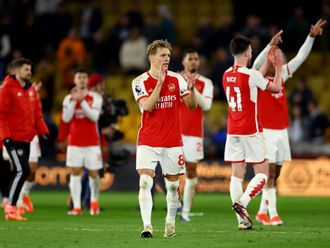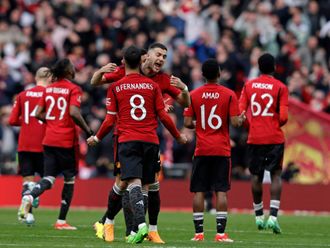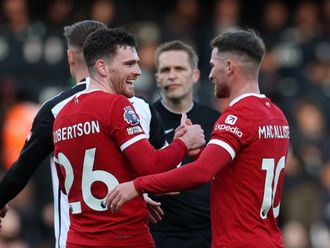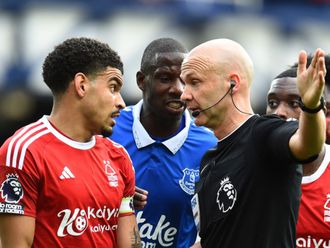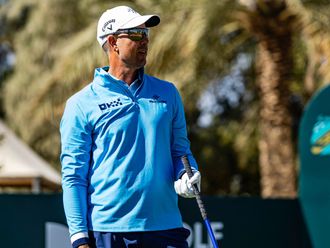The changing face of European football continues apace, taking on a distinctly Middle Eastern flavour.
A recent announcement that Real Madrid have agreed a long-term strategic partnership with International Petroleum Investment Company (Ipic) is further proof of the influence that Gulf-based businesses and high net worth individuals from the region continue to wield.
Owned by the Abu Dhabi government, Ipic has yet to divulge the exact nature of the agreement, but did at least note on its website: “The commercial arrangements will enable Real Madrid to meet one of its most fundamental future challenges, to convert the [Bernabeu] stadium into the best sporting venue in the world.”
It’s entirely fair to speculate that naming rights of the revamped stadium are therefore likely to be awarded to Ipic, which would mean that both of Spanish football’s major stadia would, eventually, be inextricably linked to the Gulf.
Work on the “Qatar Airways Camp Nou” will begin in 2017, but Barcelona have already made a start on assuaging their notoriously difficult to please socio members.
Having a first corporate sponsor in more than 100 years on the shirt was also a massive risk for Barca’s board, but it was tempered by a huge nod of acknowledgement to the power base that is positioning itself to be the future of Spanish and European football.
Suggestions that Middle Eastern interest in the game will be a fleeting dalliance are nothing but ill-informed guesswork, and significantly wide of the mark.
Qatari investment in particular is fuelled by a desire to maintain a healthy populace through sport — a local ruling denotes that all companies invest 2.5% of their profit in sport — and a willingness to gain a foothold of influence in the world game.
Hence the extensive lobbying for the 2022 World Cup, which had ex-La Liga luminaries Zinedine Zidane, Pep Guardiola and Frank De Boer happily throwing their weight behind the bid. It’s highly unlikely that those named, and others, would have supported such a bid without the promise of significant further investment and infrastructure in the sport both at grass roots and club/national level.
From an economic and footballing perspective, the holding of Fifa’s showpiece in the region brings new possibilities, thus any attempt to destabilise and discredit the same is mischief making at its finest.
Current investments at club level too are extensive, and growing.
We find controlling interests at Malaga (Shaikh Abdullah Bin Nasser Bin Abdullah Al Ahmad Al Thani), Manchester City (Abu Dhabi United Group) and Paris Saint-Germain (Qatar Sports Investments), stadium naming rights at Arsenal (Emirates Stadium) and City’s Etihad Airways complex, and extensive shirt sponsorship.
Seven of the world’s top 20 football teams are sponsored by Middle East airlines, according to Deloitte, and Emirates has evidently trumped their competitors with major brand awareness in all of the top leagues.
The shirts of Arsenal, AC Milan, Hamburger SV, Olympiacos, Paris Saint-Germain and, of course, Real Madrid all proudly display the same simple sponsor message, which in Real’s case is worth a not insignificant €30 million bounty per season.
As appetite for the sport continues to grow in the locale, a Dubai friendly on December 30 between Real Madrid and AC Milan, supported by Dubai’s Department of Tourism and Commerce Marketing, is expected to draw a record crowd.
Add beIN Sports’ recent purchase of overseas broadcasting rights for European football and it’s further evidence that Middle Eastern investment is heavyweight, genuine and more than a match for a Russian oligarch or otherwise.
Indeed, much of the money coming into the game from the Gulf states is via the business interests of either ruling families or governments, which should denote that it’s arguably in the national interest to be involved, as opposed to lining the pockets of individuals.
That La Liga especially can hold onto some of the world’s best footballing talent is due in no small part to the Middle Eastern purse.
It’s about time to give thanks for that rather than trenchant criticism.
— The writer is a freelance journalist and Spanish football expert


